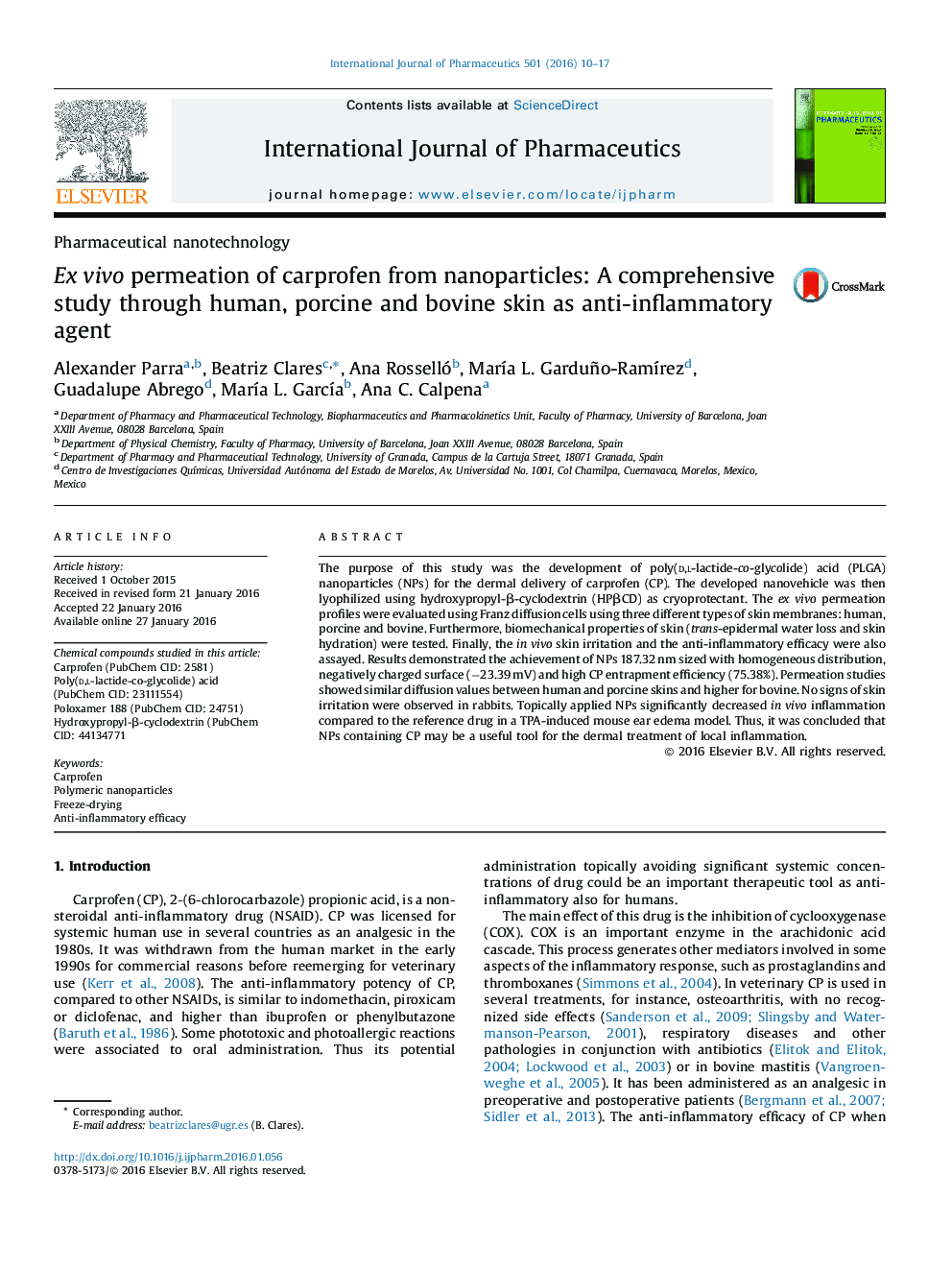| Article ID | Journal | Published Year | Pages | File Type |
|---|---|---|---|---|
| 2501095 | International Journal of Pharmaceutics | 2016 | 8 Pages |
The purpose of this study was the development of poly(d,l-lactide-co-glycolide) acid (PLGA) nanoparticles (NPs) for the dermal delivery of carprofen (CP). The developed nanovehicle was then lyophilized using hydroxypropyl-β-cyclodextrin (HPβCD) as cryoprotectant. The ex vivo permeation profiles were evaluated using Franz diffusion cells using three different types of skin membranes: human, porcine and bovine. Furthermore, biomechanical properties of skin (trans-epidermal water loss and skin hydration) were tested. Finally, the in vivo skin irritation and the anti-inflammatory efficacy were also assayed. Results demonstrated the achievement of NPs 187.32 nm sized with homogeneous distribution, negatively charged surface (−23.39 mV) and high CP entrapment efficiency (75.38%). Permeation studies showed similar diffusion values between human and porcine skins and higher for bovine. No signs of skin irritation were observed in rabbits. Topically applied NPs significantly decreased in vivo inflammation compared to the reference drug in a TPA-induced mouse ear edema model. Thus, it was concluded that NPs containing CP may be a useful tool for the dermal treatment of local inflammation.
Graphical abstractFigure optionsDownload full-size imageDownload high-quality image (121 K)Download as PowerPoint slide
